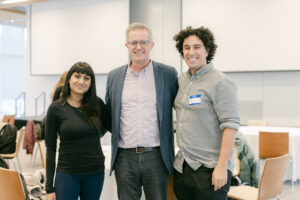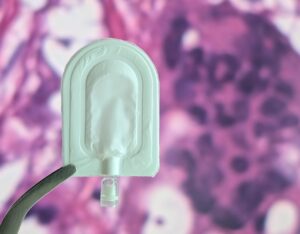
Canada is home to world-class researchers who are making discoveries with the potential to improve the lives of people living with type 1 diabetes (T1D). However, these research findings can only make a difference if we share them with the knowledge users, ie. the right people, including health care providers, people living with T1D and their communities, people at risk of T1D, and policymakers.
The Knowledge Mobilization in Diabetes Prevention and Treatment operating grants, led by the CIHR Institute of Nutrition, Metabolism and Diabetes, in partnership with Breakthrough T1D (formerly JDRF), provide researchers and knowledge users the opportunity to work together to use research evidence to improve health services, programs, and policies.
The goal of this funding opportunity is to enhance knowledge mobilization in the field of diabetes, focusing on evidence integration into health services, programs, and policies, and to:
- Increase and enhance bi-directional mobilization of knowledge and integration of evidence into policies and practices related to diabetes prevention, remission, screening, diagnosis, management, treatment, and delivery of care for all types of diabetes as well as screening and prevention of diabetes complications.
- Support researchers and knowledge users in the development and implementation of a knowledge mobilization plan to address a health system priority and/or identified evidence needs or gaps.
- Facilitate uptake of evidence to improve the lives of people at risk of or living with diabetes in Canada.
Breakthrough T1D has supported 5 of the 12 grants awarded in this competition Each grant is worth up to $125,000 each for a 1-year duration.
Anne-Sophie Brazeau, McGill University – Integrating an online training platform into type 1 diabetes clinical care to empower self-management (Support implementation)
Dr. Brazeau and her team will evaluate the implementation strategies for integrating SUPPORT, an online training platform, as part of clinic care and put in place activities to help make health care practitioners aware of the innovation. The aim will be to increase the use and uptake of the platform as well as shorten the time needed to translate research results into practice, ultimately improving the lives of people with T1D.
Valeria E Rac, University Health Network – Connecting Diabetic Retinopathy Screening Programs in Ontario. Mobilizing Knowledge across the Health System
Dr. Rac and her team will develop a pathway towards the creation of a provincial diabetic retinopathy screening program that includes a provincial registry. The team will also assess the screening needs of different patient populations living with diabetes across the province, and set up knowledge gathering workshops to improve access to diabetic retinopathy screening programs, thereby improving eye health for those individuals living with diabetes.
Peter A Senior, University of Alberta – Freedom and Flexibility – Communicating the Experiences of Beta Cell Replacement to Patients and Providers
Dr. Senior and his team will examine and explore the experiences of individuals with T1D who have undergone islet transplantation, their family members, and health care practitioners engaged in islet transplantation to better understand experiences of the risks and benefits of islet transplantation as well as the limitations of conventional treatments for T1D. The team will then work closely with the T1D community to co-create informational and educational materials that can convey a richer, more nuanced picture of the experience of living with T1D and the outcomes of islet transplantation.
Liris P Smith, Yukon University – Yukon Experiences in Management of Type One Diabetes: Patient and Provider Perspectives
Dr. Smith and her team will explore and describe the experiences of people and caregivers of people with T1D in Yukon, recognizing that the needs of the community are unique and that access to care is often limited in rural settings. The grant will allow the team to also describe the experiences of Yukon primary care providers for persons living with T1D, with the ultimate goal to improve access to care and management supports.
Ian S Zenlea, Trillium Health Partners – Supporting High School Students with Type 1 Diabetes: Mobilizing Experiential Knowledge to Combat Diabetes-Related Stigma
There is an urgent need to centre the voices of adolescents with T1D to learn about how to address diabetes-related stigma in high schools to reduce harm and foster safe and inclusive learning spaces. Dr. Zenlea and his colleagues will co-design peer-led multimedia awareness products that can address diabetes-related stigma in high school settings.
These grants are part of the overall Breakthrough T1D – CIHR Parternship to Defeat Diabetes. This unique partnership ensures that T1D remains a priority in Canadian health research and is based on a shared vision of improved care, treatment, outcomes and cures for those living with T1D.
Since its inception in 2017, this partnership has funded several innovative clinical trials and translational research projects with a view of accelerating the development of novel treatment approaches for people with T1D, in addition to cures for the disease. Multiple new cutting-edge projects will be funded in the coming year, promising to further accelerate Breakthrough T1D’s mission. Learn more about the funded research projects from this partnership.
This is an example of an instrumental partnership that is able to leverage investments from multiple funding sources and increase the speed at which novel research is conducted in alignment with our mission of a world free from type 1 diabetes.



